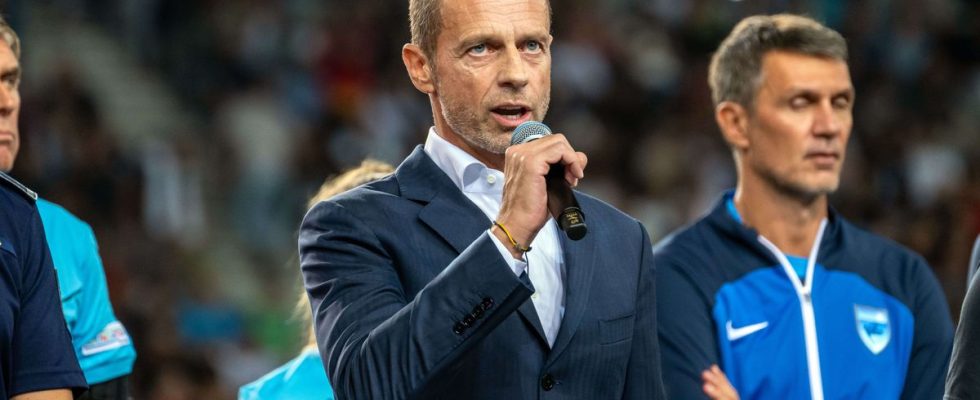It has been almost a long time since a controversy linked to the disastrous organization of the Champions League final on May 28, 2022 at the Stade de France had erupted. The Guardian, which had access to internal communications, corrected this Monday evening with an article which UEFA would have done well without. We learn that the European body is accused by one of its former collaborators of having presented “completely false evidence” during the investigation into the incidents on the sidelines of this very sad Real Madrid-Liverpool (1-0) .
And this in order to protect the Slovenian Zeljko Pavlica, head of the UEFA safety and security service and close friend of President Aleksander Ceferin. These heavy accusations were therefore made by Sharon Burkhalter-Lau, who was director of operations and event management specialist for UEFA in May 2022, before resigning four months ago. The report of the experts in charge of the investigation, appointed by UEFA, essentially pointed to the service of Sharon Burkhalter-Lau in the Saint-Denis fiasco (thousands of supporters stuck in queues, numerous attacks on the stadium square…).
“Evidence provided in good faith”
And this in order to clear the safety and security service headed by Zeljko Pavlica, whose wedding Aleksander Ceferin was the best man in 2018, who would have been appointed to his current position in 2021 without an official recruitment procedure. According to the article in GuardianZeljko Pavlica skipped crucial security meetings before this C1 final and his collaborators did not provide him with crucial information to best plan the event.
On May 28, 2022, Zeljko Pavlica was only made aware of the chaos around the Stade de France during a meeting at 8:45 p.m. to postpone the kick-off, while he was in the VIP area of the Stade de France. enclosure of Saint-Denis. He reportedly told this to the experts in charge of the investigation but it was not included in the final report. UEFA assured the Guardian that for this internal investigation, she “provided evidence in good faith”.

